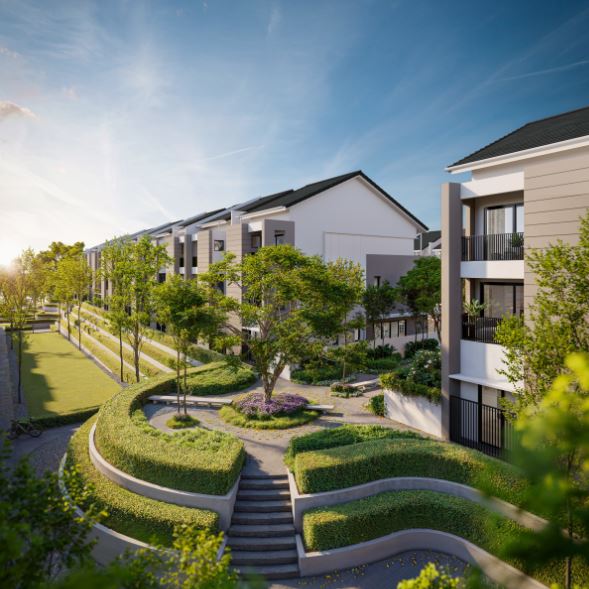Contributed by Datuk Chang Kim Loong
The proposed Urban Redevelopment Act (URA) introduces a consent threshold of 80% for properties under 30 years old and 75% for those over 30 years. This means a redevelopment project could proceed even if 20% (or 25%) of property owners object.
Such provisions raise concerns about minority property owners being compelled to relinquish their property rights against their will. This situation potentially infringes on Article 13 of the Federal Constitution, which safeguards property rights. Article 13 states that:
- No person shall be deprived of property except in accordance with the law.
- No law shall provide for the compulsory acquisition or use of property without adequate compensation.
By allowing redevelopment to proceed without unanimous consent, the URA could be interpreted as undermining these constitutional protections, especially if adequate compensation or legal recourse is not clearly and fairly provided.
Our concerns surrounding the URA are therefore well-founded, as the proposed reduced consent threshold may conflict with the fundamental principles of property ownership enshrined in Article 13 of the Federal Constitution as well as the rights and procedures established under the National Land Code (NLC).
1. Article 13 of the Federal Constitution: Right to property
Protection against compulsory acquisition: Article 13 protects the right to property, stating that no person shall be deprived of property except in accordance with the law and that any compulsory acquisition must come with adequate compensation.
Property rights beyond economic value: Property ownership is not merely an economic asset. It holds personal, emotional and heritage value. By introducing consent thresholds that may compel minority owners to relinquish their property, the URA risks infringing on this constitutionally protected right.
Majority rule vs individual rights: The URA’s consent threshold mechanism enables a majority of property owners to initiate redevelopment, potentially against the wishes of a dissenting minority. This effectively deprives some individuals of their property without full consent, raising serious concerns about whether such a law violates the individual protections guaranteed under Article 13.
2. Compulsory acquisition and adequate compensation
Article 13(2) requirements: Under Article 13(2), any law that allows for the compulsory acquisition of property must ensure the provision of adequate compensation. In Pentadbir Tanah Daerah Gombak v. Huat Heng (Lim Low & Sons) Sdn Bhd [1991] CLJ 16, the court held that compensation must place the affected person, as far as practicable, in the same financial position as if their property had not been acquired. This is known as the principle of equivalence.
Concerns over compensation under the URA: While the URA may offer compensation to property owners affected by redevelopment, it is unclear whether legal safeguards will ensure the adequacy of such compensation. Moreover, the quantum of compensation could be disputed. In Malaysian law, the concept of adequate compensation is often subjective and contentious. A property’s market value may not fully account for its sentimental or personal significance. Forcing a minority owner to sell at a price below market value, or one they do not agree to, runs counter to the spirit of Article 13.
3. Indefeasibility of Title under the National Land Code (NLC)
Principles and property rights: The NLC enshrines the principle of indefeasibility of title, meaning once a person is legally registered as the owner, their title is secure and can only be challenged in limited circumstances. The Federal Court in PJTV Denson (M) Sdn Bhd & Ors v. Roxy (Malaysia) Sdn Bhd [1980] 2 MLJ 136 affirmed that this principle is deeply embedded in Malaysian land law.
Potential erosion of ownership security: A redevelopment law that allows for forced acquisition based on majority consent could undermine this legal certainty. It may reduce public confidence in the security of land ownership, particularly if commercial interests are permitted to override individual rights. If the URA enables majority majority interests, often driven by commercial gain, to compel redevelopment, it risks contradicting the NLC’s core principle of indefeasibility and undermining the rule of law in land ownership.
4. Public interest vs private profit motive
Compulsory acquisition must serve a public purpose: Compulsory acquisition is constitutionally justified only when it serves a legitimate public purpose. However, if the URA appears to prioritise developers’ interests, under the guise of economic growth while primarily benefiting private stakeholders, its claim to public purpose becomes legally and ethically questionable.
Profit motive concerns: When private developers influence the redevelopment process and push for consent thresholds that override minority objections, the URA may be perceived as serving commercial profits rather than genuine community needs. This perception could open the door to legal challenges on grounds that the legislation lacks a valid public interest rationale.
5. Implications of Circumventing Constitutional and Legal Protections
Risk of precedent: Enacting legislation that effectively circumvents constitutional safeguards on property rights sets a troubling precedent. It signals that long-standing protections under Malaysian law may be diluted in favour of commercial expediency.
Erosion of public confidence in the legal system: Such laws could undermine public trust in the government's commitment to upholding property rights and the rule of law. Property owners may begin to fear that their rights can be overridden by similar redevelopment schemes in the future.
Judicial scrutiny likely: The courts may interpret the URA as legislative overreach, especially if it infringes upon constitutionally protected rights or contradicts established land law principles. Judges could call for stricter consent thresholds or even strike down provisions deemed unconstitutional.
6. Balancing Development and Property Rights
Legitimate urban renewal vs forced dispossession: Urban conservation and revitalisation play an important role in addressing urban decay and promoting sustainable development. However, the URA could be susceptible to abuse if skewed too heavily in favour of developer interests over homeowners’ rights. In some cases, buildings are demolished for redevelopment even though they are structurally sound and far from the end of their lifespan. Experts estimate that most buildings are designed to last 50 to 60 years before requiring major maintenance or preservation works.
Government accountability and transparency: To ensure fairness, the government must engage transparently with all stakeholders, including homeowner groups and civil society. Without meaningful consultation, there is a risk that the URA will be seen as disproportionately favouring private developers, eroding trust and support for genuine urban renewal initiatives.
While the URA seeks to facilitate urban redevelopment, it may face legal challenges due to its potential impact on property rights protected under Article 13 of the Federal Constitution. In short, economic progress should not come at the expense of citizens’ constitutional rights.

Datuk Chang Kim Loong is the honorary secretary-general of the National House Buyers Association (HBA).
The article is jointly written by National House Buyers Association legal advisor Koh Kean Kang.
Stay ahead of the crowd and enjoy fresh insights on real estate, property development and lifestyle trends when you subscribe to our newsletter and follow us on social media.
















































